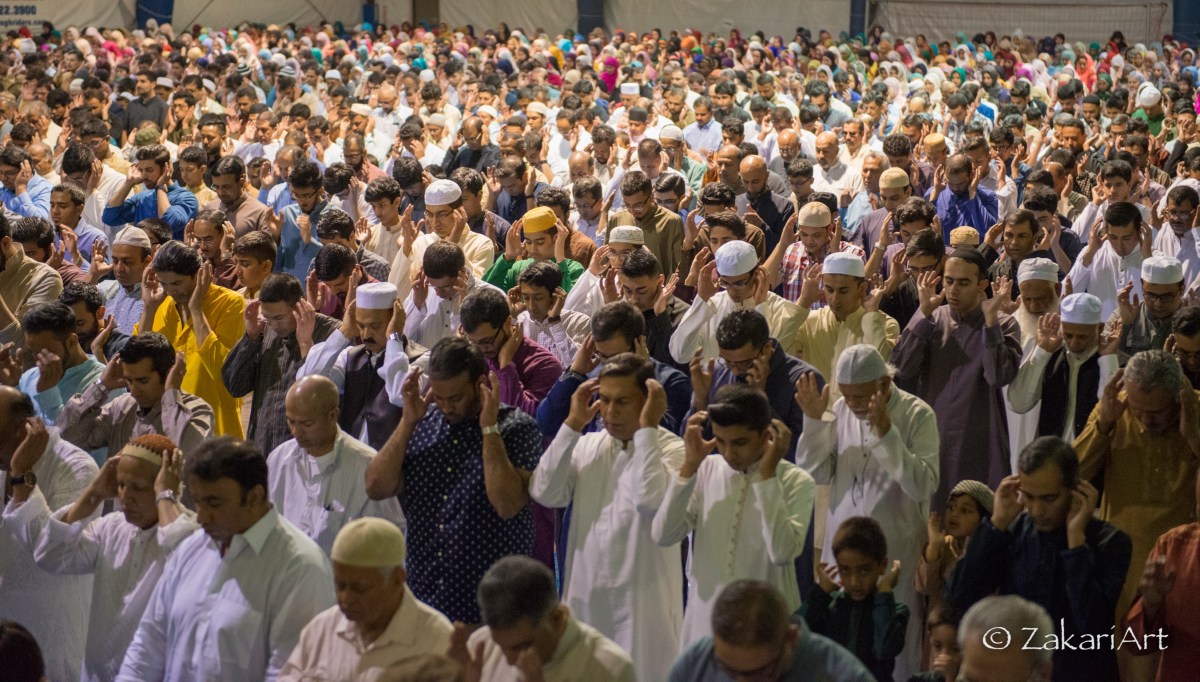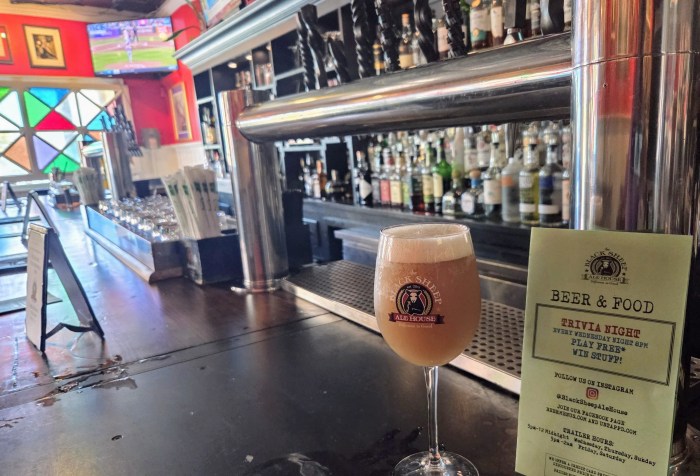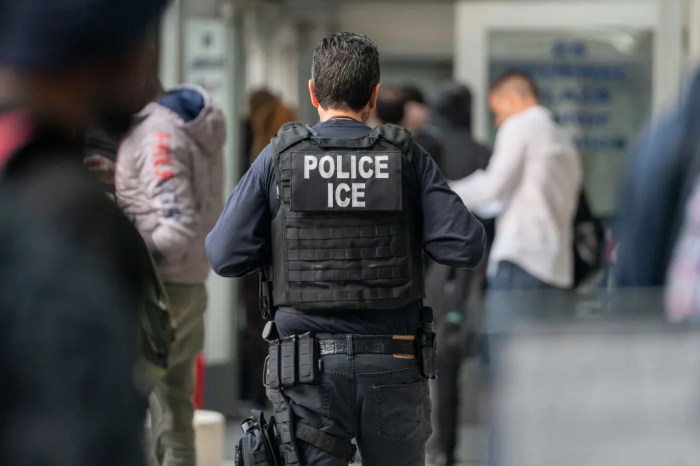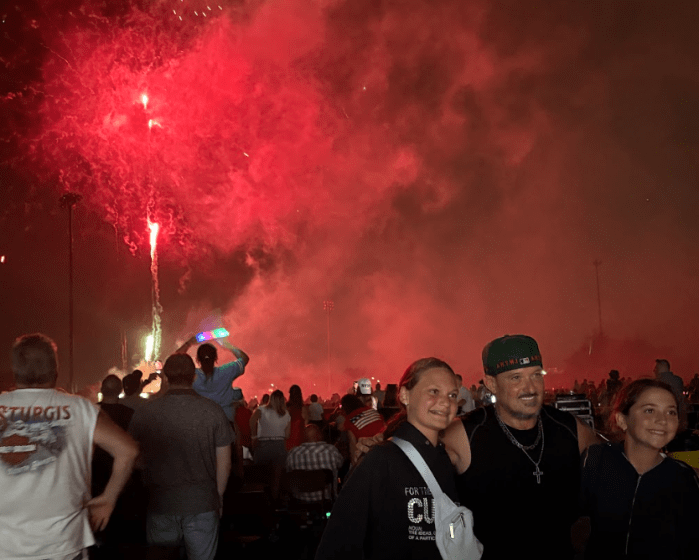A sea of worshippers, thousands strong, celebrated the end of the Muslim holy month of Ramadan with two early morning prayer sessions on Wednesday inside a cavernous dome building at the Mitchel Field Complex in Uniondale. But they did so with a measure of trepidation given the bloodletting that has tainted this beloved holiday.
Through a series of heinous massacres that true local believers declare is proof ISIS and other groups who murder in the name of Islam have nothing to do with the non-violent spirit of the religion, hundreds have died the past month in terrorist attacks in predominantly Muslim countries: 41 at an airport in Turkey, 250 in Iraq, 20 at a cafe in Bangladesh. Additionally, all the bloodshed and loss of life came during what’s considered one of the holiest of Islamic holidays.
And it was during Ramadan that a shooter who pledged allegiance to ISIS savagely gunned down 49 partygoers inside an Orlando nightclub last month, though his motivations have yet to be fully understood.
As Long Island Muslims prayed under an unforgiving sun to revel in the Eid al-Fitr holiday they were advised to reach out to their neighbors to teach them about their customs and culture. The service also served as an opportunity for religious leaders to remind people about how much work still needs to be done to combat pervasive Islamophobia.
‘Time to Take Action’
“The holy month of Ramadan is about community building, reflection—reflection internally toward one’s faith, toward one’s action and outwardly, how to bring community together, to get involved with charity,” said Dr. Isma Chaudhry, president of the Islamic Center of Long Island, which organized the massive prayer service.
“In these challenging times it is important that we don’t stand segregated, that we come out as one community,” Chaudhry told reporters after the morning-long service. “Whatever our faiths are, whether we belong from a faith group, whether we do not belong from a faith group, we have to come out as global citizens.”
Chaudhry spoke after the second of a pair of services that organizers estimated attracted upwards of 5,000 people.
This was the fourth straight year the ICLI held its end-of-Ramadan prayer at Mitchel Field.
Many of the worshippers who attended the first service hung around to exchange pleasantries. “Eid Mubarak,” they said to friends and strangers alike as they exchanged hugs. Many sought refuge under the trees that lined the parking lot while thousands of their fellow Muslim Americans kneeled for prayer inside the complex’s giant dome building.
Sheikh Ibrahim Negm, visiting scholar from Al Azhar University in Cairo, Egypt, said he impressed upon those praying the importance of being part of their communities, especially during these trying times.
“This is a time also to take action, to encourage the community to take action, to tap into the spiritual reserve of their faith and to engage and to open up and to contribute constructively to the well-being of the world and to take ownership of these many challenges,” Negm told the few members of the media who attended a post-prayer press conference.
His message to the American people was one of unity.
“We are in it together. We are in a ship,” he said. “It would be unfair to demonize an entire faith because of the acts of some lunatics and idiots. These lunatics and idiots are found in every major faith traditions. We are with you, hands in hands. We are in one ship. And we will sail together against these violent winds and we will reach the shore of safety.”
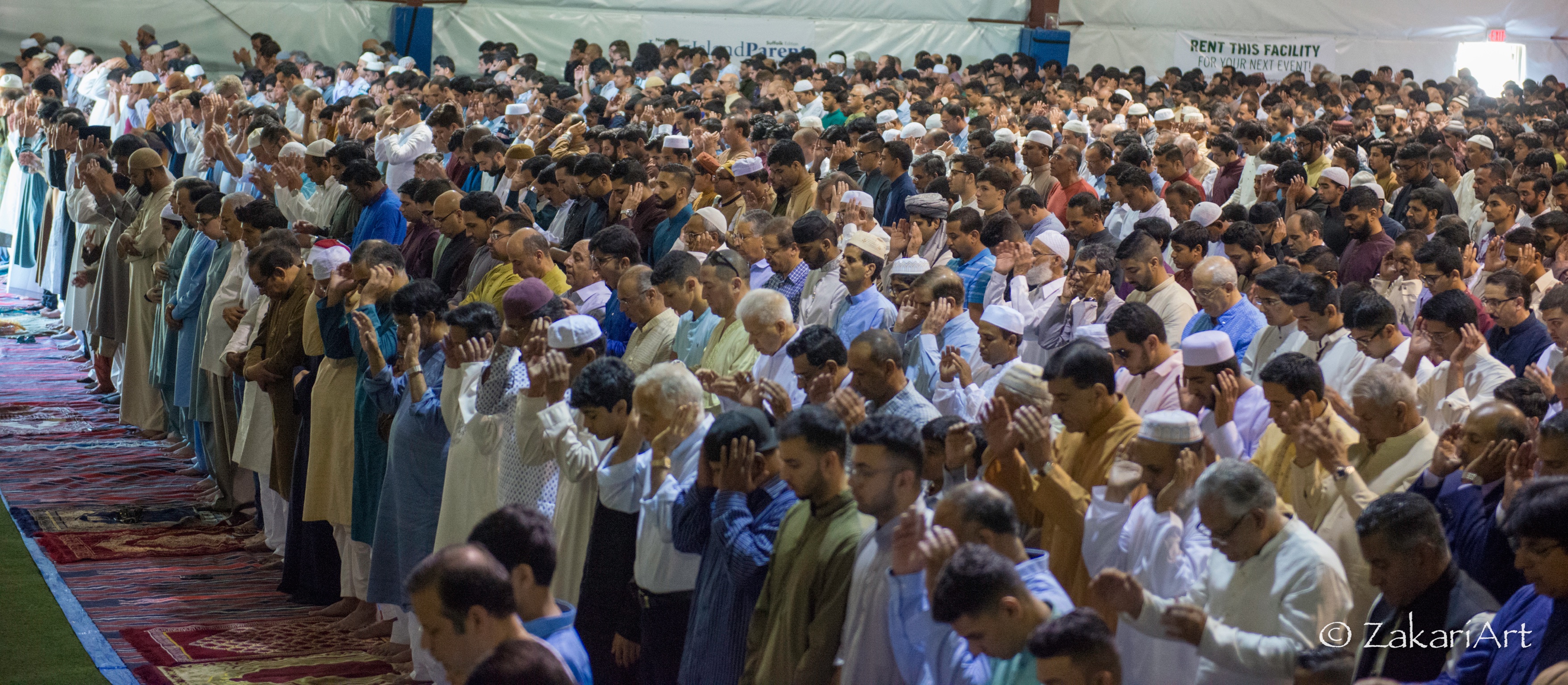
Negm was forthcoming when asked about the perception many Americans have of Muslims. He noted that religious leaders needed to make a better effort to “promote moderation and understanding and peace-building and bridge-building among everybody.”
‘It is embarrassing to even call them Muslims.’
Outside the facility, 18-year-old Ramsha Ahmad of Jericho said she was frustrated with the media’s portrayal of Islam.
“Islam is such a religion of peace,” she told the Press. “You can’t say this is a religion of violence and you can’t believe Islamophobic people like Donald Trump and figures who tell people that ISIS is an example of how Islam is violent, because Eid and Ramadan is an example of how we come together.
“We’re blessed to sit together,” added Ahmad, a sophomore law student at Drexel University. “We’re not fighting every day for our lives, and we have freedom. That’s why we feel blessed.”
Taking a break from collecting prayer mats, Habeeb Ahmed, an ICLI board member, also noted that the Muslim community needs to be more proactive.
“I don’t know where these people are coming from, what they’re thinking,” he said of terrorists who have maimed and killed hundreds during the holy month. “They say that they’re Muslims, [but] according to me, they just cannot be Muslims the way they have been behaving.
“They say they’re fighting for Muslim causes, and then they’re blowing bombs and blowing up places and Muslims are getting killed: 100 here, 150 there,” he added. “They’re spilling Muslim blood and they’re saying this is for a Muslim cause. It is such a dichotomy. It is hard to understand what is the frame of mind. It is embarrassing to even call them Muslims.”
Despite the impressive turnout, Ahmed could not help but feel uneasy. The presidential election has once again put Muslim Americans in the forefront of the campaign, while attacks on mosques are on the rise, and there’s been troubling reports of anti-Islam hate crimes increasing throughout the country.
“The feeling of the unknown is a real fear,” he said. “They are fearing us these days and some people are helping them to fear us.”




